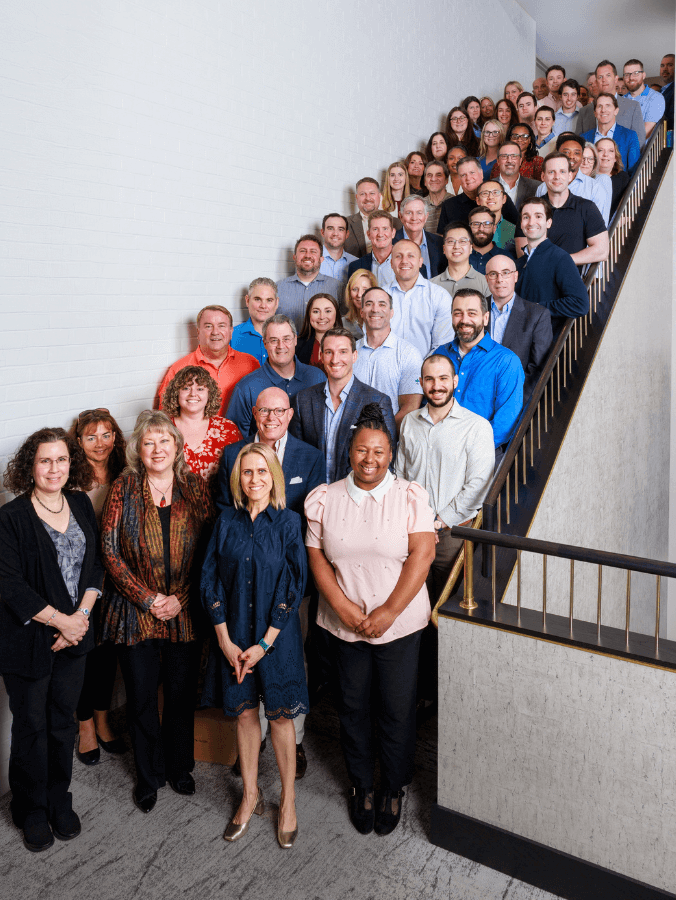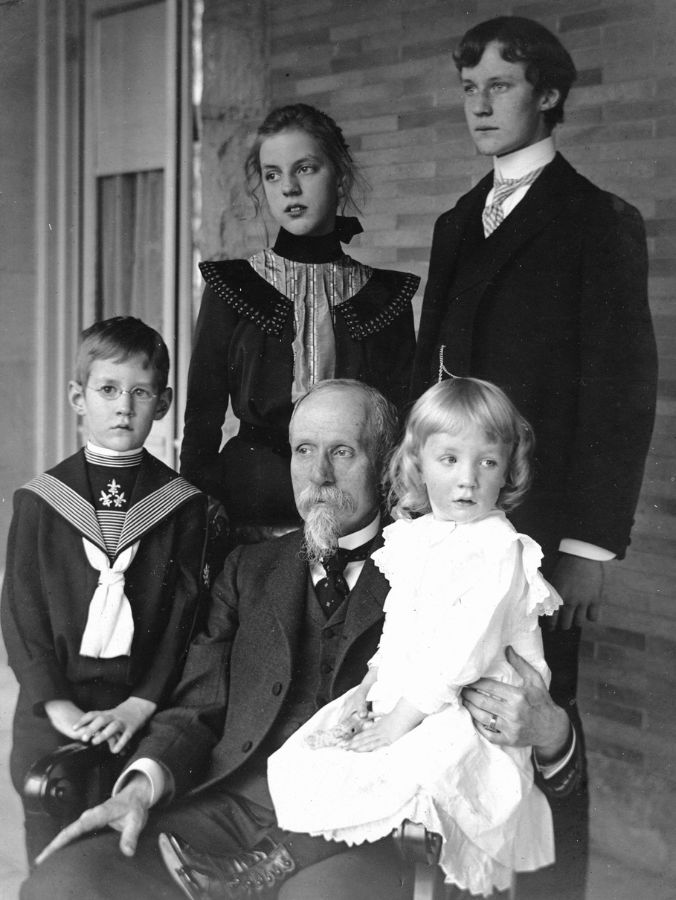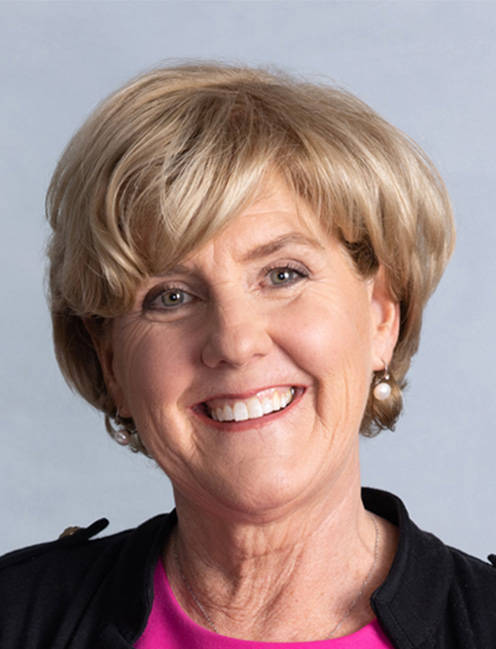-
Who We Are
Who We Are
For the last century, we’ve dedicated ourselves to empowering families like yours to prosper and endure. Like many of the leading families we serve, we have been through our own wealth journey.
Discover Pitcairn -
What We Do
Wealth Momentum®
The families we serve and the relationships we have with them are at the center of everything we do. Our proprietary Wealth Momentum® model harnesses powerful drivers of financial and family dynamics, maximizing the impact that sustains and grows wealth for generations to come.
Explore - Insights & News

I recently wrapped up a one-year journey with a select group of Pitcairn clients from our rising generation community. This group of a dozen young current and future wealth owners came together each month to talk, share, and learn, all to become better stewards of their family’s wealth. They ranged in age from 25 to 41. A few were siblings or cousins, but most didn’t know each other before the group formed.
Across the 12 months, we covered many topics that were especially relevant to future family enterprise leaders. For example, effective communication and conflict management, enhancing generational relationships, developing resilience and grit, and achieving lasting impact through philanthropy. We also frankly discussed stumbling blocks these young people had encountered or might encounter while preparing for leadership roles. As one participant said at the end of the program: “We’re in our family bubble, and just being able to talk to other peers and amazing experts has been very special. This community has been helpful because our families have never really done this.”
In this article, I highlight a few issues that routinely challenge the rising generation and strategies for navigating them.
Mistaking the True Meaning of Wealth
In our culture, it’s common to equate wealth with money. But wealth is so much more than that. Wealth comes from the Old English word for “well-being.” When families understand the true meaning of wealth, they use their financial resources to support all aspects of the family’s development and can better ensure well-being across multiple generations. Embracing this holistic perspective helps rising generations prepare for future roles as wealth stewards and family leaders.
Underestimating the Effects of Family Culture
Family culture is a powerful tide that shapes family interactions and guides decision-making. Rising generations might not think much about their family’s culture and maybe aren’t even fully aware of it, but culture is a thread that comes down through the generations. Any trait baked into your family’s identity – loyalty, service, generosity, frugality, industriousness, patriarchy – will affect family dynamics, sometimes to the good and other times to the detriment of the family or individual members. Recognizing that impact will undoubtedly smooth your path. Which is not to say you shouldn’t butt up against family culture. Rising generations can be family culture innovators. Be sensitive to the culture, whether you accept it or work to change it.
Getting Locked in a Role
Your parents or grandparents have built substantial wealth. They may be your primary source of income, paying your expenses and disbursing discretionary funds for your use. They have all the power for now, and it’s easy to play the child when your parents “have it covered.” Keeping your eyes on the future and the role you’d like to see yourself play is the best way to overcome this pitfall. There is a plan for the family money, and it’s up to you to understand the plan and then learn to live within it or seek a new approach and strategy. If you and your parents haven’t talked in detail about what the future holds, the sooner you do, the better.
Skirting the Learning Curve
Lifelong learning goes hand-in-hand with being a successful, effective wealth steward. Anything that gets in the way of learning – entitlement, passivity, laziness, fear, lack of resources – is an obstacle for families of wealth and particularly members of rising generations. Learning is how we build competence, confidence, and self-esteem. Learning together is how families grow together and stay together. Families who commit resources to develop all family members increase the likelihood they will flourish over multiple generations. Be the catalyst to help your family embrace a culture of learning if they haven’t already.
Confusing the Owner Role from the Beneficiary Role
Many families use trust structures as vehicles to transfer wealth. Trusts have grantors who own and control the trust and beneficiaries who may someday own the assets, but not yet. Understanding these legal definitions and the roles and responsibilities of owners and beneficiaries can eliminate a great deal of tension between current family leaders and rising generations. I recall a situation where a mother and daughter suffered through painful conflicts because they disagreed on managing trust assets. Ideally, they would have had a dialogue and come to a mutual agreement, but in the end, the mother created the trust and was the trustee, and it was her right and responsibility to direct it. A combination of education and open communication helps families surmount this potential pitfall.
Prioritizing Speed Over Patience and Care
We are all impatient at times, especially young people who yearn for greater autonomy and a clear role. However, trying to make fast work out of a slow process rarely yields the desired results. This is particularly true for wealth management, family governance, and legacy issues. It takes time. First, there is learning to form a foundation. Next comes conversation and engagement to understand family identity and shared values. Finally, there is compromise to establish family roles and a decision-making framework. No matter how smartly you go about it, governance and legacy are slow work.
Not Preparing for Wealth
In the past, financial resources were considered the most important and sometimes the only focus of a family’s wealth planning. Families had a team of advisors to prepare and grow the money for the family. Far less attention was paid to preparing the family for the money. But no one is born with the innate ability to be a good wealth steward, and few schools educate students in financial literacy, let alone a nuanced, holistic concept of wealth. Commitment to learning and family engagement is essential for avoiding this potential pitfall.
Not Owning Your Future
When your family is ultra-wealthy, the assurance of future financial security may lull you into complacency. However, financial security is just one component of a fulfilling life. We are all called to be the authors of our own stories, and no one should wait for life to be handed to them. I often coach members of rising generations as they search for their purpose, and I enjoy going through a process of self-discovery with them. Ultimately, of course, you must own your own future and do the work to shape it. I was so gratified when one G4 participant told me that the RGC experience had gotten her over this hurdle. “This experience has given me the huge freedom to own my story,” she said.
Eclipsed by the Meteor
An important mentor of mine, Jay Hughes, a renowned family advisor and author, compares the genesis of family wealth to a meteor. The “meteor” (wealth creation event) has far-reaching implications beyond the initial impact. It’s very easy for members of rising generations to get stuck so close to the meteor that it pulls them into a crater or leaves them lost in the shadow. I am a passionate proponent of distancing yourself from the meteor and finding a way to make your own impact.
Engaging with Pitcairn’s first RisingGen peer group has been a rewarding and enlightening experience for me. Talking with them about potential pitfalls and strategies to overcome them was an important part of our yearlong journey together. I was truly humbled by their willingness to be vulnerable – that openness was at the heart of what several called a transformative experience.
The RisingGen community is just one example of Pitcairn’s family engagement offerings, which include life design and personal development, personalized learning, coaching, and peer enrichment. Through family engagement, Pitcairn helps family members find their own personal superpowers and helps families find power in shared goals, values, and history.
Disclaimer: Pitcairn Wealth Advisors LLC (“PWA”) is a registered investment adviser with its principal place of business in the Commonwealth of Pennsylvania. Registration does not imply a certain level of skill or training. Additional information about PWA, including our registration status, fees, and services is available on the SEC’s website at www.adviserinfo.sec.gov. This material was prepared solely for informational, illustrative, and convenience purposes only and all users should be guided accordingly. All information, opinions, and estimates contained herein are given as of the date hereof and are subject to change without notice. PWA and its affiliates (jointly referred to as “Pitcairn”) do not make any representations as to the accuracy, timeliness, suitability, completeness, or relevance of any information prepared by any unaffiliated third party, whether referenced or incorporated herein, and takes no responsibility thereof. As Pitcairn does not provide legal services, all users are advised to seek the advice of independent legal and tax counsel prior to relying upon or acting upon any information contained herein. The performance numbers displayed to the user may have been adversely or favorably impacted by events and economic conditions that will not prevail in the future. Past investment performance is not indicative of future results. The indices discussed are unmanaged and do not incur management fees, transaction costs, or other expenses associated with investable products. It is not possible to invest directly in an index. Projections are based on models that assume normally distributed outcomes which may not reflect actual experience. Consistent with its obligation to obtain “best execution,” Pitcairn, in exercising its investment discretion over advisory or fiduciary assets in client accounts, may allocate orders for the purchase, sale, or exchange of securities for the account to such brokers and dealers for execution on such markets, at such prices, and at such commission rates as, in the good faith judgment of Pitcairn, will be in the best interest of the account, taking into consideration in the selection of such broker and dealer, not only the available prices and rates of brokerage commissions, but also other relevant factors (such as, without limitation, execution capabilities, products, research or services provided by such brokers or dealers which are expected to provide lawful and appropriate assistance to Pitcairn in the performance of its investment decision making responsibilities). This material should not be regarded as a complete analysis of the subjects discussed. This material is provided for information purposes only and is not an offer to sell or the solicitation of an offer to purchase an interest or any other security or financial instrument.






